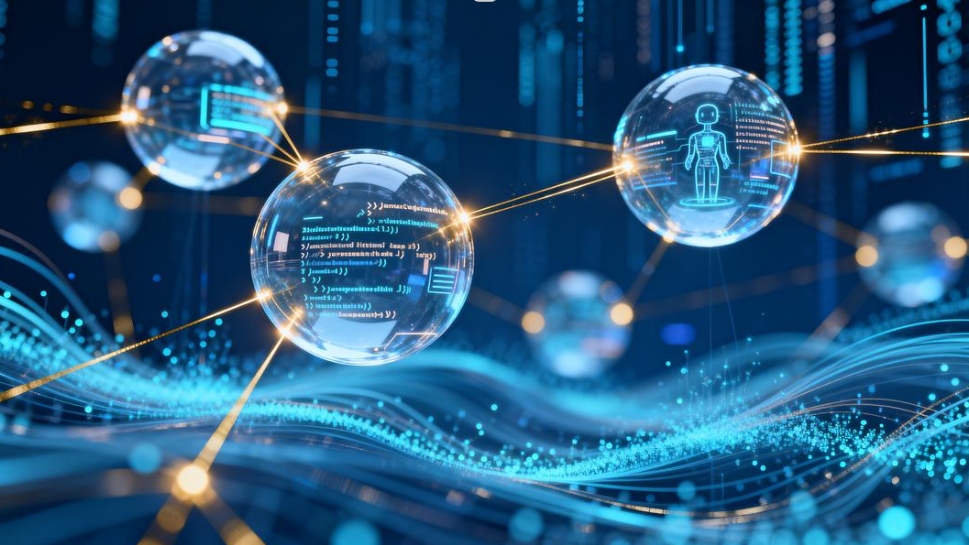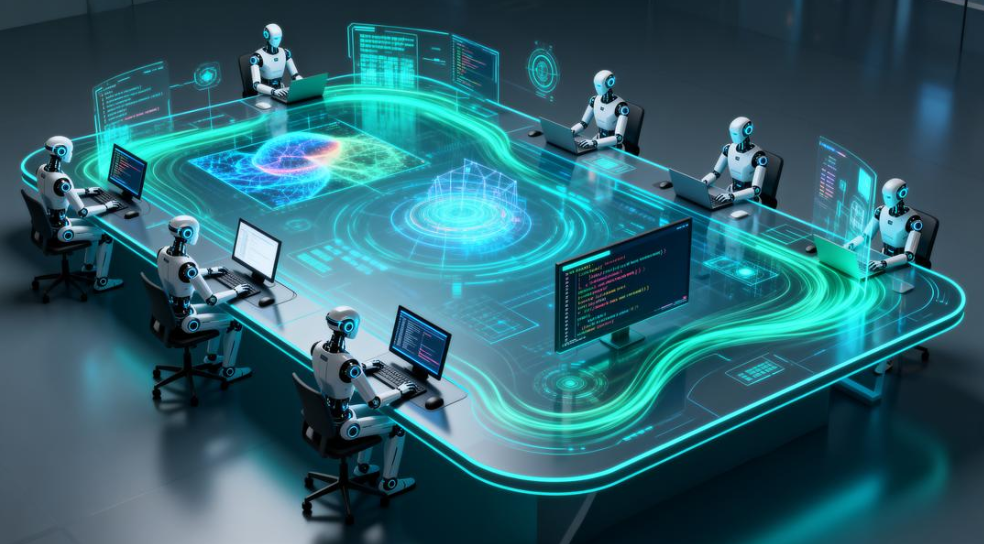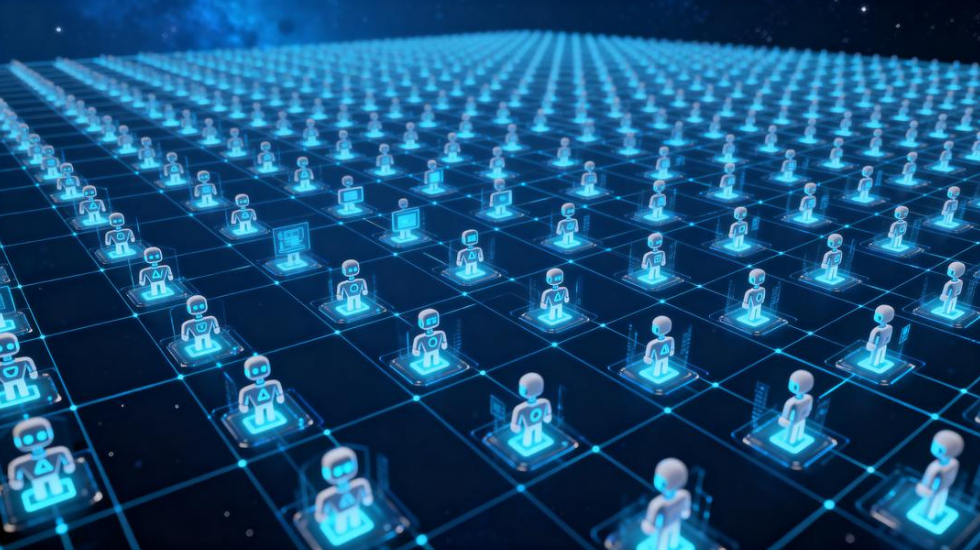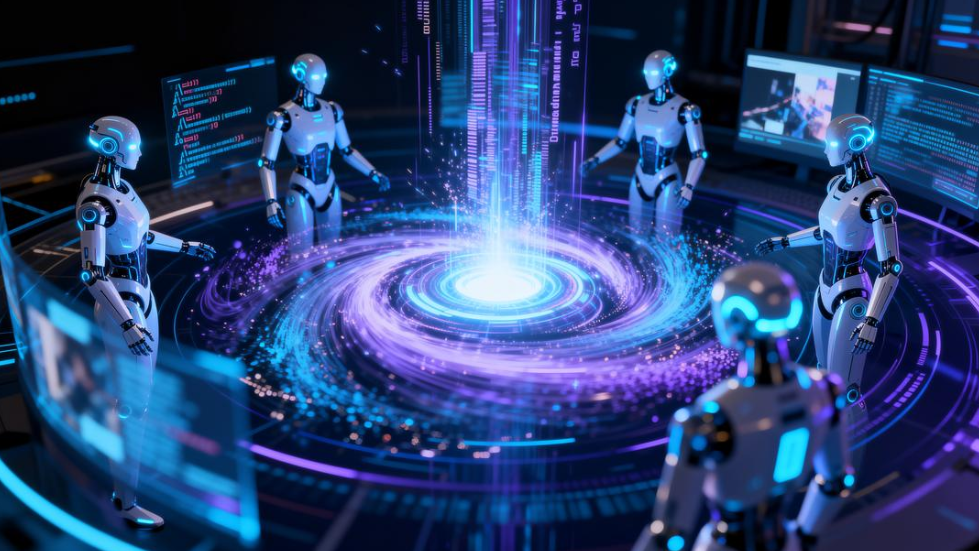Industry Shift: How AI is Reshaping Software Engineering
The recent announcement of Macrohard, a new AI-driven software company from Elon Musk's xAI, has generated significant discussion. The vision for this venture is to create a company that can "do anything except manufacture physical objects". Reportedly, Macrohard plans to achieve this through collaborative networks of hundreds of AI agents specializing in programming and image/video generation to enable fully automated software development.
This vision signals we're entering a new paradigm for software engineering. Traditional development requiring extensive engineering teams is being transformed by AI-driven approaches. This represents not just a technical breakthrough but a fundamental shift in mindset.

At LBAI, we've been deeply aligned with this trajectory. Our GELA project, developed over the past year, shares similar visionary goals but with distinct approaches and positioning.
The GELA Project: A New Paradigm for AI Systems Engineering
The GELA project is positioned not as a simple AI feature application but as a complex software system. In the pre-AI era, developing a "large-scale automated code generation and structured editing system" comparable to GELA would have been considered an "engineering-grade task" achievable only by core engineering teams at top tech companies like Google or Microsoft.
Cross-Paradigm Integration: Deep Fusion of AI and Systems Engineering
GELA's fundamental innovation lies in its deep integration of AI/NLP, compiler technology, distributed systems, and software engineering. We don't simply call APIs but use the rigorous language of systems engineering to "encapsulate" and "express" AI capabilities, making them reliably callable, composable, testable, and maintainable like microservices.
Unlike approaches that focus solely on model scale, GELA specializes in transforming probabilistic AI outputs into deterministic system services. We incorporate compiler design principles, using technologies like LibCST to ensure AI-generated code has structured reliability.
Contract-Driven AI Systems
In the GELA architecture, we've introduced "contract-driven" design. Each AI component has clear interface specifications and verifiable behavior contracts, giving the system characteristics of observability, testability, and maintainability. This represents the crucial difference between enterprise-grade applications and experimental prototypes.

Industry Trends: From Model-Centric to System-Centric Approaches
The AI industry is undergoing a significant transition. The initial focus was on training larger models, but the trend is now shifting toward how to engineer and productize existing models. The industry consensus is that the next competitive barrier won't be pure model capability but the ability to transform it into stable, reliable, and scalable system capabilities.
Solving the "Last Mile" Problem of AI Applications
Despite the powerful capabilities of large language models, integrating them into actual production workflows remains challenging: unstable outputs, difficulty in debugging, high costs, and security risks. GELA addresses this pain point directly through system-level design that provides "structural guarantees" for AI code generation, transforming the probabilistic output of LLMs into deterministic components that can be relied upon in software development workflows.
Our approach doesn't replace developers but enhances their capabilities. Just as modern web development frameworks enable creativity through constraints, GELA provides appropriate constraints and guidance to ensure AI-generated code meets enterprise-grade standards and quality requirements.

AI Systems Engineering: Practicing an Emerging Discipline
The GELA project represents the practice of a new discipline—AI systems engineering. This requires teams to possess both system architecture abstraction capabilities and awareness of systematic engineering constraints when working with large models.
The AI Systems Architect: A Critical New Role
Completing a project like GELA requires a new type of composite talent—the "AI systems architect"—who must understand both AI model principles and system engineering constraints. Our team comprises AI engineers, systems engineers, and test engineers working together to produce "observable, controllable, and maintainable AI systems."
At LBAI, we're not just building systems but defining a new methodology and professional paradigm. This goes beyond mere technical implementation to involve the fresh definition of organizational structures, development processes, and quality standards.

Future Outlook: The Prototype of Next-Generation Intelligent Software Factories
GELA's ultimate goal isn't to create just another AI project but to make "AI a first-class citizen in software engineering." That means transforming probabilistic LLM outputs into deterministic, reliable services through system design.
Rethinking Next-Generation Software Development
As AI code generation technology matures, we face profound questions: When AI can generate most code, what becomes the core value of software developers? We believe it lies in systems thinking, architectural design, and understanding business essence.
The GELA project represents a direction where developers are freed from coding details to focus more on overall system architecture, business logic design, and coordinating AI agents. This isn't just about efficiency gains but represents an evolution in the nature of work itself.
Conclusion: The Art of Balancing Certainty and Possibility
In the AI era, we face a core challenge: how to balance AI's creative possibilities with software's operational certainty. The GELA project is our answer: through system-level design, providing a reliable operational foundation for AI creativity.
Future software engineering will no longer be just about coding but about designing and guiding intelligent systems. We look forward to exploring this promising new frontier with industry colleagues.
Food for thought: When AI can automatically generate and optimize most code, where do you believe the core value of software engineers will manifest? We welcome your insights.
LBAI Technology Innovation Blog Series: Sharing cutting-edge thinking and practice in AI systems engineering. Follow our technical updates to explore the future of intelligent software development together.